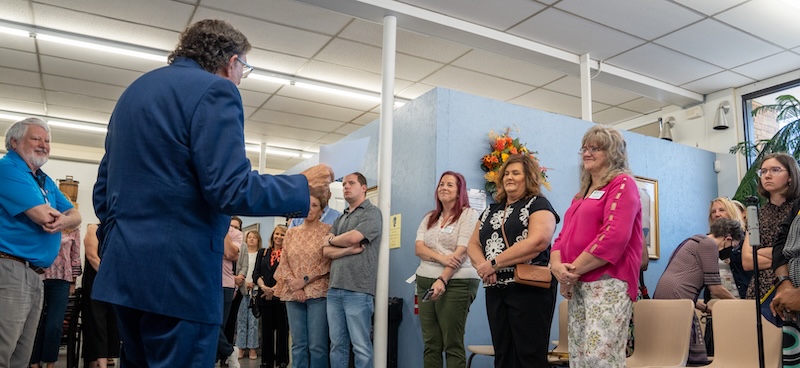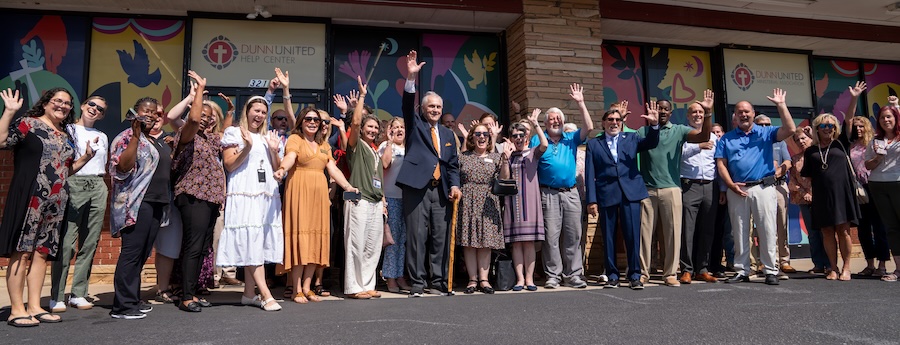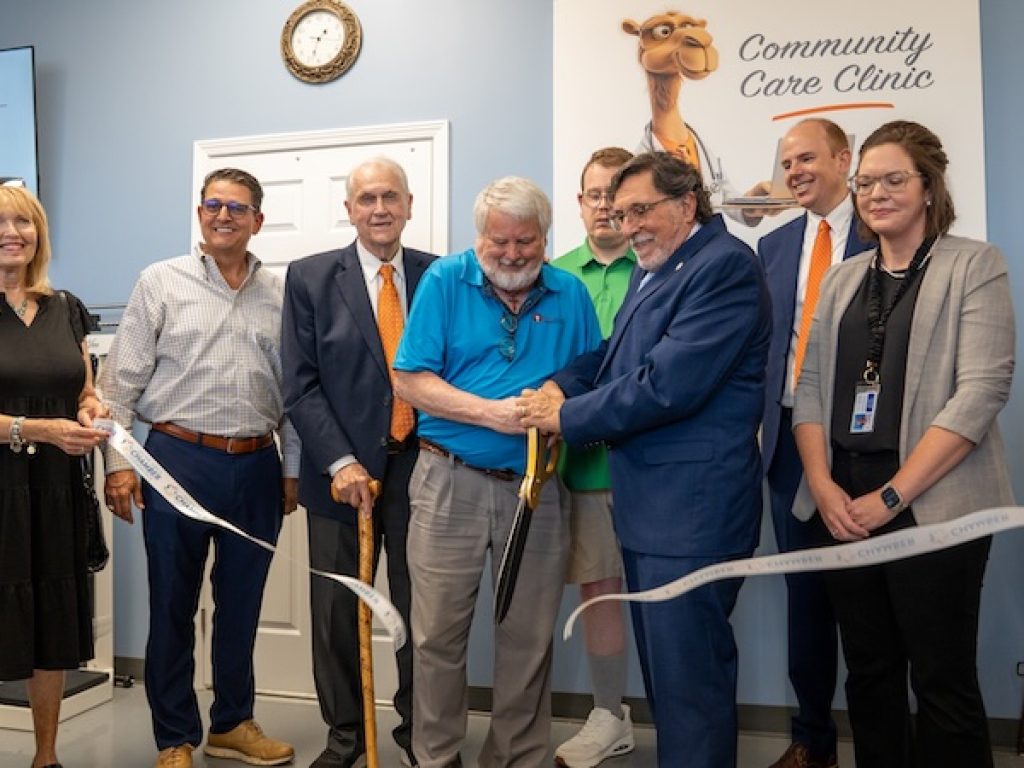Todd Snyder was talking about people in his community. People who have lost their jobs, their homes. People who are hungry. People seeking medical care.
Snyder is director of the Dunn United Ministerial Association (DUMA). The ministry, composed of Dunn-area churches, offers myriad services for residents, including a food pantry, crisis assistance and financial help.
Tuesday nights, DUMA hosts a Campbell University Community Care Clinic, which offers free visits, lab work, imaging and medications to people who would not otherwise have access to health care.
 The Dunn clinic, which has been open for several weeks, held a ribbon-cutting ceremony to officially christen the healthcare facility.
The Dunn clinic, which has been open for several weeks, held a ribbon-cutting ceremony to officially christen the healthcare facility.
DUMA, Snyder said during the ceremony Sept. 24, is a place people go to for help, a “hub” for community services. Snyder talked about the origins of DUMA and its subsequent growth, about its many services and partners, which include the Salvation Army, the state Department of Aging, United Way and the Harnett County Health Department.
“It was like God sent these people, because they knew that this was a hub for people that needed help,” Snyder said.
Established in 2014 within Jerry M. Wallace School of Osteopathic Medicine, the Campbell free clinic is composed of physicians and physician assistants who oversee teams of medical and pharmacy students. The clinic gets funding through multiple state grants, including, for example, a recurring grant from the N.C. Department of Health and Human Services/Office of Rural Health, primarily for operational funding. Additional funding, from the N.C. Area Health Education Centers (AHEC), comes in the form of an Interprofessional Education grant, which has provided startup funds and operational funds for two years at DUMA.
The Campbell clinic sees only uninsured patients, living at or below 250 percent of the U.S. poverty line.
Dr. Joe Cacioppo, director of Community and Global Medicine at the medical school, said 13 percent of people in Dunn live at the poverty level, and 12 percent are without health insurance.
“That’s what we do,” Cacioppo said. “Our patients are all uninsured.”
In addition to the grants, the clinic also largely relies on private donations and other support, such as fundraising events.
It’s the only such clinic in the country run solely by students, with some faculty oversight. No patient is left behind, Cacioppo says. The students, he says, learn not to hide behind a laptop. They look, see and listen to the patient.
“That’s the kind of care (patients) are getting here,” he said. “Our students are wonderful. They volunteer. They don’t get any credit for this, by the way, they don’t get any credit at all. They come to volunteer.
“They’re learning because of one-on-one patient contact and learning that you can develop a relationship with a patient, that you understand their language. We have to give thanks to you, DUMA, for having a vision.”
Two years ago, Campbell mobile and freestanding clinics saw 1,589 patients, which is 89 patients more than the defined limit, according to the grant. Last year, the clinic saw some 1,670 patients, about 170 over the prescribed threshold.
Dr. Jerry M. Wallace, a past Campbell president for whom Campbell’s med school is named, attended the ceremony. He looked at those gathered and said, “I see children of God. I feel very much at home here. This is a dream that has come true.”


